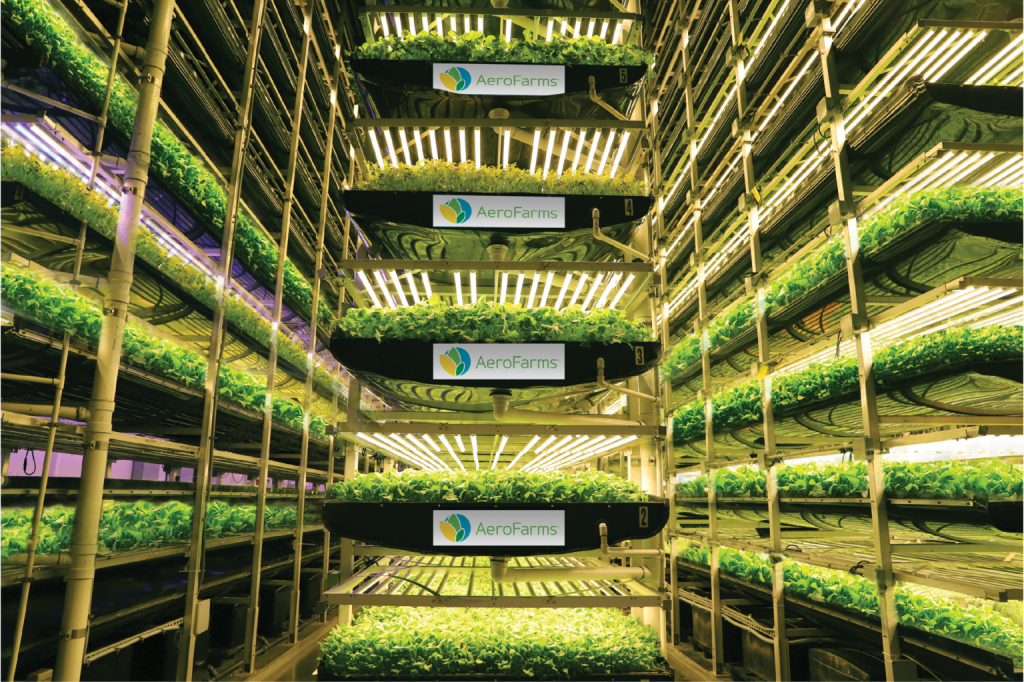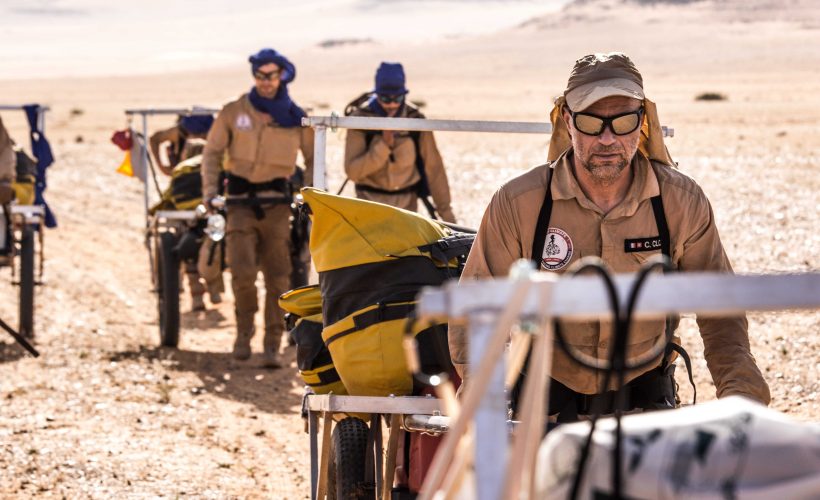Tech & Business
10.27.2020
Revolutionary Vertical Farm to be established in Abu Dhabi

AeroFarms, the most prominent agricultural technology firm in recent years, is currently rolling out its concept around the world, with projects in China, the Middle East, and Northern Europe. Let’s shed some light on the implementation of their “vertical farm”, planned for 2021 in Abu Dhabi, United Arab Emirates.
No sun, no soil, but a lot of data. This is how we could summarize the vertical farm technology implemented by AeroFarms in Newark, New Jersey (USA). However, it would probably be simplistic not to dwell on the tempting environmental statistics claimed by David Rosenberg, CEO of AeroFarms: “We are close to zero waste and use 95% less water than traditional agriculture,” he said on World Water Day, March 22, 2020. Considering that 70% of the world’s water resources go to agriculture and 70% of the contamination of fresh water comes from agriculture, the concept is appealing. Add to this the fact that the carbon emissions emitted by their high energy consumption are offset by the absence of pesticides, herbicides, fungicides and other heavy agricultural machinery, and you may have the perfect recipe for the future of urban agriculture.

Idéal pour le Moyen-Orient
Voilà qui n’est pas tombé dans l’oreille d’un pays sourd. Les Emirats arabes unis, friands d’investissement leur permettant de verdir leur modèle économique (l’émirat d’Abu Dhabi a récemment déclarer qu’il mettait 110 millions de dirhams – 25 millions d’euros – à la disposition des entreprises innovantes dans la technologie au service de l’agriculture), sont d’ores et déjà en train de construire leur propre ferme verticale urbaine à Abu Dhabi. Elle ouvrira mi-2021 et suscite déjà beaucoup d’engouement, comme en témoignent les quelques 9000 candidatures reçues par AeroFarms pour constituer sa future main d’oeuvre.
Là où, en général, AeroFarms produit plutôt des “greens”, comprenez de la roquette, des baby bok choi (plante très appréciée dans la cuisine asiatique), et consorts, la compagnie devrait s’engager sur de nouveaux terrains à Abu Dhabi. C’est en tout cas ce qu’a promis son PDG dans un entretien accordé à TheNational.
Ideal for the Middle East
This did not fall on deaf ears. The United Arab Emirates, eager to invest in greening their economic model (the emirate of Abu Dhabi recently declared that it was making 110 million dirhams – 30 million dollars – available to innovative companies in technology at the service of agriculture), are already building their own urban vertical farm in Abu Dhabi. It will open in mid-2021 and is already attracting a lot of interest, as evidenced by the 9,000 or so applications received by AeroFarms to build its future workforce.
Where AeroFarms typically produces “greens,” including rocket, baby bok choi (a popular plant in Asian cuisine), and the like, the company is expected to move into new land in Abu Dhabi. At least that’s what its CEO promised in an interview with TheNational.

Societal rather than commercial issues
It is first and foremost a food safety issue. The number of malnourished people around the world is increasing, and the Covid-19 pandemic is not helping. This is why to succeed in producing more food using less resources and occupying less arable land, which is already in decline, is a major challenge.
In fact, where the Newark plant sells its products to surrounding companies (Singapore airlines for example, which is located at the airport of the same name, a few cables away from the farm), the Abu Dhabi site is more likely to be used for research, in addition to improving food security. With the help of a $7.5 million grant from the U.S. government, and the contribution of skills and vision from a consortium of diverse backgrounds (growers, geneticists, and equipment manufacturers in particular), the company intends to develop new methodologies for indoor cultivation.
popular

